
Vitamins: What’s The Best One For You?
This is what vitamins actually do to your body. What’s the best vitamin for you?
Vitamins are very different, and you’re probably spending your hard-earned money on all the wrong ones.
You’re exposing yourself to pesticides even from soaps or skin care products you get from Walmart.
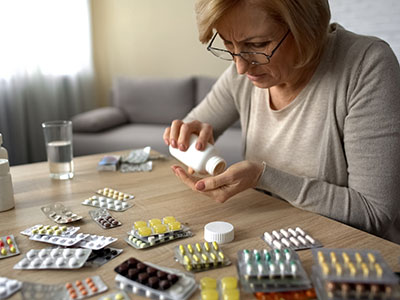 Do you know about the effect those effervescent tablets have on your liver and kidneys? Are they as natural as they claim to be?
Do you know about the effect those effervescent tablets have on your liver and kidneys? Are they as natural as they claim to be?
That’s why today, I will reveal to you what you need to know about the most popular vitamins and show you how you can get them 100% naturally.
Essential Vitamins for Thriving
I bet no one’s ever really told you why your body starts feeling differently after turning 35 – and no it’s not because you’re getting older… It’s because the ability to absorb certain nutrients diminishes, making it essential to focus on vitamin intake to prevent deficiencies.
Here are all the vitamins you need to know about and you can get them from ‘nature’s supermarket’:
Vitamin A
Vitamin A is essential for vision, immune function, and skin health. It supports cell growth and reproductive health, helping to prevent night blindness and promote healthy mucous membranes.
Sources: Carrots, sweet potatoes, spinach, and liver.
Vitamin B1 (Thiamine)
Vitamin B1 converts nutrients into energy and supports nerve, muscle, and cardiovascular function. It’s crucial for glucose metabolism and preventing beriberi, a disease-causing nerve and heart issues.
Sources: Whole grains, pork, and sunflower seeds.
Vitamin B2 (Riboflavin)
Vitamin B2 is important for energy production and supports skin, eye, and nerve health. It also aids in the metabolism of fats, drugs, and steroids.
Sources: Milk, eggs, almonds, and spinach.
Vitamin B3 (Niacin)
Vitamin B3 converts food into energy and supports skin health, digestion, and brain function. It also helps lower cholesterol levels and prevents pellagra, disease-causing dermatitis, diarrhea, and dementia.
Sources: Chicken, tuna, turkey, and mushrooms.
Vitamin B5 (Pantothenic Acid)
Vitamin B5 synthesizes coenzyme A for fatty acid metabolism and supports hormone production, red blood cell formation, and wound healing.
Sources: Avocados, yogurt, eggs, and mushrooms.
Vitamin B6 (Pyridoxine)
Vitamin B6 supports brain health, mood regulation, and protein metabolism. It also aids in hemoglobin production and immune function.
Sources: Chickpeas, salmon, potatoes, and bananas.
Vitamin B7 (Biotin)
Vitamin B7 is important for healthy hair, skin, and nails, and assists in macronutrient metabolism. It supports enzyme function and plays a role in gene regulation.
Sources: Eggs, almonds, sweet potatoes, and spinach.
Vitamin B9 (Folate)
Vitamin B9 is crucial for DNA synthesis, cell division, and fetal development during pregnancy. It also helps form red and white blood cells.
Sources: Leafy greens, legumes, and citrus fruits.
Vitamin B12 (Cobalamin)
B12 is the one transporting oxygen throughout your body, boosting your energy levels. It also supports your brain health because it maintains the myelin sheath that protects nerve fibers, so your cognitive function won’t be impacted so hard as time flies by.
Just imagine how you would look like being the most energetic of your friends. You’ve naturally built up so much energy which makes you do more activities, while they watch their years go by without much action. If you want to become a health guru among them, the B12 vitamin will give you the energy to do so. I had to get a second tincture since I shared most of mine with others…
Your ticker is what sends blood to your brain. That’s how your brain gets oxygen and works. Without Vitamin B12, your blood glucose isn’t regulated, your cholesterol isn’t balanced, and your blood pressure is far from normal… it all goes south.
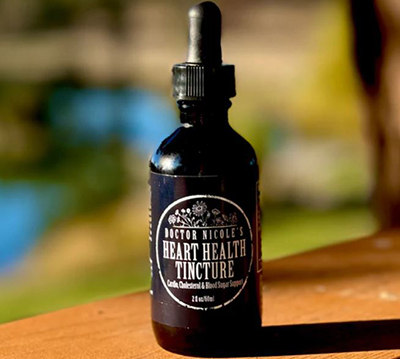 Fortunately, you can encourage your heart and metabolism with the specific set of herbs that I mentioned above. You just need to make remedies out of them.
Fortunately, you can encourage your heart and metabolism with the specific set of herbs that I mentioned above. You just need to make remedies out of them.
However, if making remedies yourself is not your thing, you can get them in a ready-made tincture HERE!
Vitamin C (Ascorbic Acid)
Have you ever wondered why avocado recipes contain lemon juice? It’s not just for the taste. The answer is simple: Lemons are abundant in Vitamin C, which is an antioxidant. It prevents the avocado from turning black. For the exact same reason, you should consume Vitamin C. Try it yourself. Pour some lemon juice over a mashed avocado and it won’t oxidize!
This essential vitamin is also used to stimulate the production of white blood cells, which are your internal army that fights cancer cells, chronic infections and other diseases. It also aids in the repair and growth of tissues, and can help heal wounds faster.
You can get plenty of Vitamin C from oranges, strawberries, bell peppers, broccoli, and lemons. Here’s the recipe I use every other day to feel revigorated and make sure I get my Vitamin C intake.
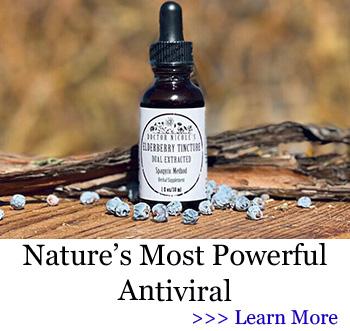 Get a cup of hulled strawberries, ½ cup of pineapple chunks (fresh or frozen), ½ lemon, juiced, and ½ cup of water or coconut water. Add them all to a blender and blend until smooth. I also add some ice cubes.
Get a cup of hulled strawberries, ½ cup of pineapple chunks (fresh or frozen), ½ lemon, juiced, and ½ cup of water or coconut water. Add them all to a blender and blend until smooth. I also add some ice cubes.
When the blend is ready, add a few drops of the Dual-Extracted Elderberry Tincture. This powerful mix is used as a remedy for its known immune-boosting properties, the perfect complementary to Vitamin C.
Vitamin D
Vitamin D is called “the sunshine vitamin” because your body creates it if you are exposed to the sun. Your body needs Vitamin D to maintain bone health. Without this vitamin, your body couldn’t absorb calcium at all. That’s why people with a Vitamin D deficiency are more likely to have joint pain, which is a symptom of arthritis or an autoimmune disease.
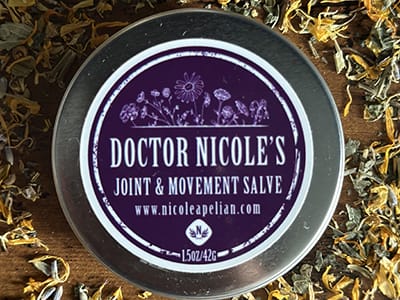 I needed Vitamin D like I needed water back a year ago. I just wanted a quick way to relieve the pain plaguing my joints. Although I don’t have arthritis, age is catching up with my good health.
I needed Vitamin D like I needed water back a year ago. I just wanted a quick way to relieve the pain plaguing my joints. Although I don’t have arthritis, age is catching up with my good health.
A week or two after I started using the Joint & Movement Salve on my pain spots, the aches started to subside!
Vitamin E
Vitamin E acts as an antioxidant, protecting cells from damage. It supports immune function and skin health, and may reduce the risk of heart disease.
Sources: Nuts, seeds, spinach, and sunflower oil.
Vitamin K
Vitamin K is important for blood clotting and bone health. It also supports heart health by preventing arterial calcification.
Sources: Kale, broccoli, Brussels sprouts, and fermented soy products.
Where To Start?
Now that you know the role of most vitamins, you can start by deciding which health need you want to address first – such as boosting energy, enhancing immunity, or reducing inflammation. Then, choose quality foods and natural remedies that target those ailments. If you pair them together, even better! Taking the remedies right after a meal enhances the absorption of all their medicinal properties. You can either make the remedies yourself or get them from a trusted source.
The change doesn’t happen overnight. If you’ve lived a damaging lifestyle for years, you need at least a few months to revitalize your body.
Now you have the information. Don’t wait any longer to start thriving.
If you’re tired of the side effects of hard-to-pronounce meds and chemicals, now is the time to feed your body natural herbal remedies you can make from the comfort of your own home.
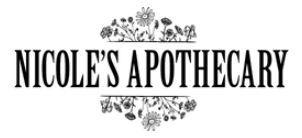 But if you want to get them from a trusted source, I recommend Nicole’s Apothecary. These are vegan, non-GMO tinctures that will quickly relieve you of joint pain, inflammation, will boost your immune system and overall health!
But if you want to get them from a trusted source, I recommend Nicole’s Apothecary. These are vegan, non-GMO tinctures that will quickly relieve you of joint pain, inflammation, will boost your immune system and overall health!


Thank you so much for this Vitamin guide!!
It’s amazing how these remedies bring back memories of my own grandma. She used those same herbs when she was raising me, and it’s like a wave of nostalgia every time I read about those tinctures. It’s like they’re trying to push us towards all these synthetic vitamins when, really, nature has everything we need right there.
I didn’t see natural sources of B12 in your article, but appreciate the lists under most of the other vitamins…Could you please list those for B12 also? Thank you
It is there, maybe you went too fast on scrooling
I took the info from the ingredient list of the recommended tincture… it’s actually common herbs only
The foods containing vitamin B12 are primarily animal meat, fish, eggs, and dairy.
You’re missing a lot of information and providing a lot of disinformation which is too bad.
For example you cannot get vit. A from plants your getting the inactive form of beta-carotin which your body then needs to convert to vit. A. Only 30% of the population are able to do that effectively. Best sources for vit A are red meat or internal organs, liver is only one of them, not the only one like you mentioned.
Same with vit. K there are two forms you only mentioned one of them both are crucial K1 K2
K2 mostly found in animal products.
Same with all the B vitamins, you can’t get B12 from anywhere in the plant world which is not mentioned at all in the article which is completely misleading to people , you can supplement or you need to eat dairy meats and fish, inner organs being again the best source, B6 is incredibly hard to get enough of from the plant world as well.
Other B vitamins are no exception.
Please be more accurate with the information you’re posting to people.
This is not the first time I come across inaccuracies and one sided information that is being provided on this platform.
You know your way around the plant world maybe focus on that!
Elena, curious, what qualifies you in this manner?
Google most probably
I searched on B12 and you don’t list the herbs to use. It only mentions a tincture.
I agree, I am looking for it as well and cant find it.
Do you send products to Canada? or it is still not go trough the US or Canada border I live in Alberta please let me know if I pay for any of your remedies will I have a problem to get it?
Since this is an herb newsletter would have been wonderful if you mentioned the herbs that carry these vitamins as well. thanks